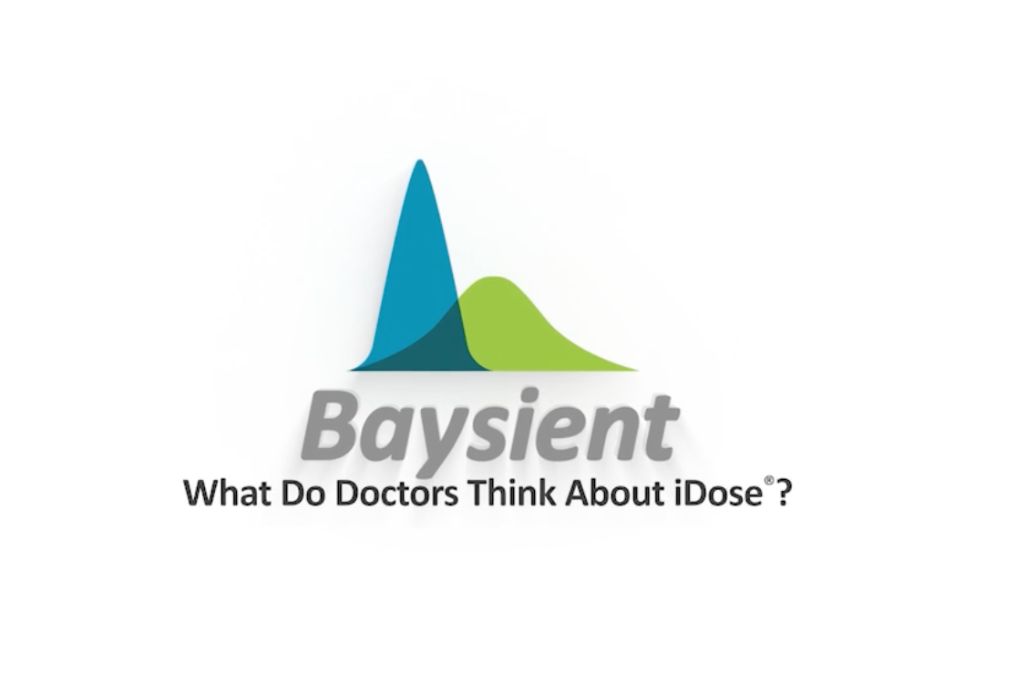Inflammatory Bowel Disease (IBD) management, particularly with biologic therapies like infliximab, has long been challenged by issues such as antibody formation, variable drug clearance, and the high costs associated with frequent dosing. In many cases, biologics are introduced only in advanced disease stages, making it essential to find a balance between effective treatment and affordability.
At P.D. Hinduja Hospital & Medical Research Centre, Dr. Devendra Desai, a gastroenterologist, and Dr. Alpa Dherai, a biochemist specializing in therapeutic drug monitoring (TDM), are leveraging Baysient’s iDose platform to tackle these challenges head-on. In their recent video testimonial, they share powerful examples of how iDose is transforming their approach to infliximab therapy, offering a new level of precision that minimizes antibody formation and ensures therapeutic effectiveness over time.
The Power of iDose in Optimizing Dosing Schedules
One particular case Dr. Desai recalls in the video involves a young patient with severe ulcerative colitis who initially struggled to achieve remission. After conventional dosing failed to relieve her symptoms, iDose enabled the team to tailor her infliximab regimen, adjusting dosages based on real-time TDM data to maintain optimal drug levels. Over time, these personalized adjustments allowed her to reach a state of stability and significantly improve her quality of life — a result that standard dosing schedules alone could not achieve.
Dr. Dherai explains that in many cases, adhering to an eight-week dosing schedule can lead to antibody development, particularly when biologics are introduced in later stages. iDose’s predictive capabilities, which provide trough-level insights based on Bayesian modeling, allow clinicians to avoid the pitfalls of one-size-fits-all dosing. By determining precisely when a dose is needed, iDose helps prevent both premature and delayed dosing, effectively reducing the risk of antibody formation — a critical factor for patients paying out of pocket in countries with limited insurance coverage.
Real-world Data: Addressing Low Infliximab Levels in
Dr. Dherai’s department at Hinduja Hospital has gathered data from 900 samples across India, revealing that 41% of IBD patients had subtherapeutic infliximab levels following initial induction. For these patients, traditional dosing adjustments often led to trial-and-error approaches that could exacerbate costs and reduce drug efficacy. However, iDose has changed this approach, allowing clinicians to make data-driven dosing decisions that are both precise and sustainable, helping to maintain therapeutic levels while minimizing the need for additional interventions.
A Shift from Empirical Dosing to Predictive Precision
Reflecting on his experience with iDose, Dr. Desai emphasizes the satisfaction of being able to predict drug levels accurately and adjust dosing with confidence. Unlike the former process of empirical adjustments — frequent changes to dosing intervals without clear guidance — iDose empowers clinicians to set target levels and maintain them consistently. This proactive approach is not only improving patient outcomes but also reducing the burden of reactive, costly interventions for both patients and providers.
Request a Demo to Discover iDose’s Impact
The experiences of Dr. Desai and Dr. Dherai illustrate how iDose is redefining IBD management by making precision dosing accessible and effective. For clinicians seeking to enhance patient outcomes through individualized dosing strategies, iDose provides the tools needed to make therapeutic drug monitoring both actionable and predictive.
Ready to see how iDose can elevate your approach to IBD treatment? Request a demo today to explore the potential of precision dosing with Baysient.


